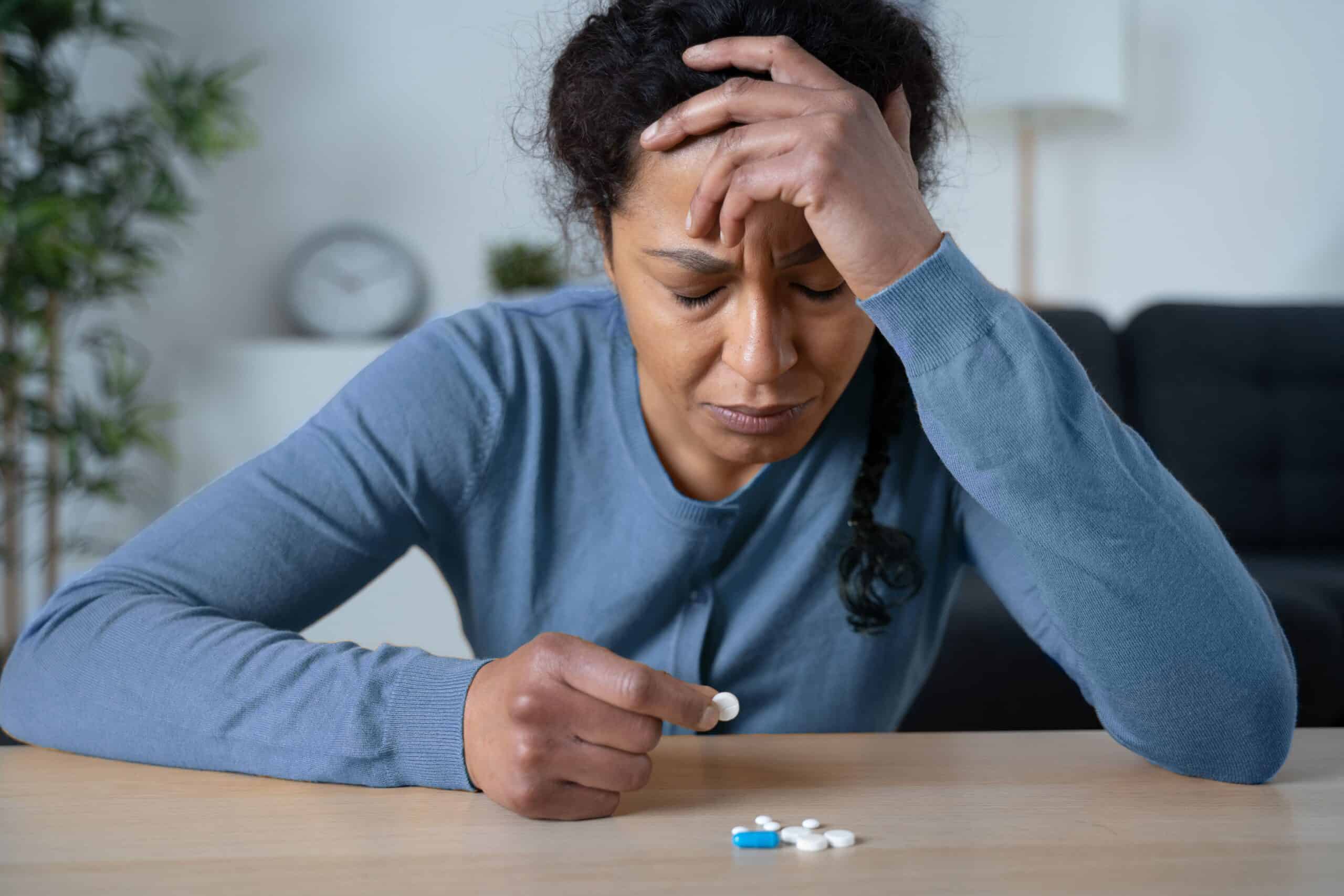Benzos are prescription medications that can be beneficial for some people when taken as prescribed. However, like other drugs, there is the risk of misuse and addiction. When you or someone you care about has developed a benzo use disorder and wants help, the first step in recovery is going through detox. So, it is understandable you would like to know how long does benzo detox last.
What Are Benzos?
Benzos are a group of medications commonly prescribed to treat anxiety and insomnia. Examples of benzos include Xanax, Valium, Klonopin, and Ativan. Unfortunately, Benzos are highly addictive and can cause serious physical and psychological dependence if taken for a long time.
What Are Some Street Names for Benzos?
Benzos have many street names, including Tranks, Downers, V-Bombs, Z-bars, and Chill Pills.
How Do Benzos Make You Feel?
Benzos can make you feel relaxed and sleepy, but they can also produce feelings of confusion, weakness, and dizziness. Long-term use of benzos can lead to dependence, tolerance, and addiction. If you are using benzos, it is important to speak with a doctor about the risks and to follow their dosing instructions.
How Addictive Are Benzos?
Benzos are highly addictive and can cause physical and psychological dependence if taken for a long time. In addition, withdrawal symptoms can be intense and may occur when stopping or reducing benzo use. Therefore, it is essential to consult a doctor to determine the safest way to stop benzos.
What Changes Do Benzos Cause in the Brain?
Benzos cause changes in the brain’s chemistry by increasing the amount of gamma-aminobutyric acid (GABA) in the brain. GABA is a neurotransmitter that helps regulate brain activity and produces a calming effect.
Although benzos can be effective in managing anxiety and insomnia, they can be highly addictive and can cause physical and psychological dependence when taken over a long period.
How Hard Is It To Stop Using Benzos?
Stopping benzos can be challenging for someone who is physically and psychologically dependent on the drug. In addition, withdrawal symptoms can be intense and can include anxiety, restlessness, insomnia, and nausea. Therefore, before attempting to stop taking benzos, it is crucial to speak to your doctor or a medical detox center to determine the safest way to do so.
How Do People Become Addicted to Benzos?
Benzo addiction typically occurs when the drug is taken in higher doses than prescribed, taken more frequently than prescribed, or taken for longer than prescribed. Benzos can be highly addictive and cause physical and psychological dependence if taken over a long time.
Signs of Benzo Use Disorder
Benzo use disorder can vary from person to person, but some of the most common signs include:
- Taking more benzos than prescribed.
- Taking benzos for longer than prescribed.
- Craving benzos.
- Struggling to reduce or stop using benzos.
- Experiencing withdrawal symptoms when stopping or reducing benzos.
- Neglecting responsibilities due to benzo use.
- Experiencing problems in personal relationships due to benzo’s use.
Common Benzo Withdrawal Symptoms
Benzo withdrawal can be uncomfortable and can vary from person to person, but some of the most common symptoms include the following:
- Anxiety
- Restlessness
- Insomnia
- Nausea
- Agitation
- Muscle pain
- Sweating
- High blood pressure
- Seizures
- Hallucinations
How Long Does Benzo Detox Last?
The duration of benzo detox can vary depending on the individual and their level of benzodiazepine dependence. Generally, benzo detox can last anywhere from one week to several weeks. However, it is important to note that detox is only the first step in recovery and that longer-term treatment may be necessary to ensure lasting sobriety.
Benzo Detox Timeline
Benzo detox typically follows a set timeline, although the exact timeline may vary depending on the individual and their level of dependence. Generally, a benzo detox timeline looks like this:
- Day 1: Symptoms of withdrawal begin to appear, including anxiety, restlessness, insomnia, and nausea. Day 3-5: Symptoms typically peak and can be quite intense.
- Day 7-10: Symptoms gradually begin to subside, although some physical symptoms may linger.
- Day 14-21: Most physical symptoms have resolved, but some psychological symptoms may remain.
- Day 21+: The detox process is usually complete, although psychological symptoms, called post-acute withdrawal syndrome (PAWS), may still linger. Long-term treatment for benzo addiction is typically recommended.
How Long Does Post-Acute Withdrawal Syndrome Last?
PAWS is a set of symptoms that can occur after the initial period of benzo withdrawal. These symptoms can include cravings, anxiety, depression, insomnia, and fatigue and can last for weeks or months, sometimes longer. Therefore, following a comprehensive treatment plan that includes therapy and lifestyle changes is essential to help manage PAWS symptoms.
Benefits of Benzo Detox at a Medical Detox Center
Medical detox centers are specialized facilities that provide medical care and support during detox from benzos. Detoxing at a medical facility can offer the following benefits:
- 24/7 medical monitoring and support.
- Individualized care and treatment.
- Medication to manage withdrawal symptoms using medication-assisted treatment (MAT).
- Psychological support.
- Access to comprehensive treatment programs.
Benzo detox is the first step in the recovery process, but it is just the beginning. Long-term treatment and support are essential to ensure lasting sobriety and successful recovery.
Benzo Detox Treatment in Pompano Beach, FL
When you are ready to take the first steps in your recovery, help is available at DCF and Joint Commission-accredited Retreat of Broward in Pompano Beach, FL. We offer personalized detox treatment programs that can include MAT at our medical detox center. So start your benzo detox in a safe, supportive, and caring environment today by contacting us.






